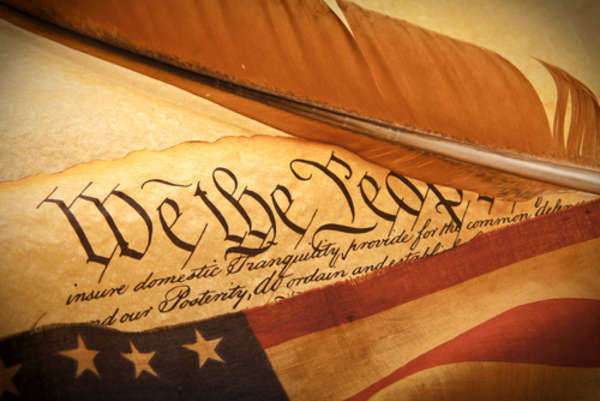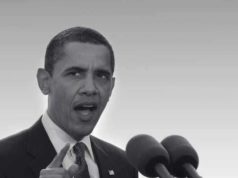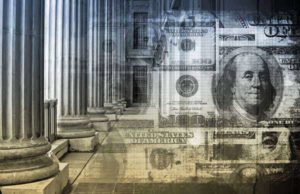
Establishment Clause
The phrase "Establishment Clause" refers to an important sentence in the First Amendment of the Constitution of the United States of America. The Establishment Clause states that "Congress shall make no law respecting establishment of religion." There are two ways that this statement has generally been interpreted. The first interpretation of the Establishment Clause states that this sentence is designed to forbid the government from establishing an official national religion. The second interpretation of the Establishment Clause states that its purpose is to prevent the government from favoring one religion over the interests of another, but does not prevent the government from taking religious acts.
The precise meaning of the Establishment Clause has provided the background for a number of prominent Supreme Court cases concerning the separation of church and state. One important case the 1962 case of Engel v. Vitale. The origins of this case rested in a lawsuit brought forth by a coalition of parents in New Hyde Park, New York who objected to their children being required to recite a prayer at the beginning of every school day.
The wording of this prayer did not specifically mention any deity other than "Almighty God." Therefore the school district that the Establishment Clause was not being violated, since no particular religion was being promoted. The district also argued that recitation of the prayer was not compulsory. However, the Supreme Court ruled that the very fact that a school was promoting religion constituted a violation of the Establishment Clause. Furthermore, the Supreme Court stated that the term "Almighty God" endorses all religions which make use of the term, thereby constituting another violation of the Establishment Clause.
The importance of Engel v. Vitale was confirmed the following year in another case which essentially upheld this interpretation of the Establishment Clause. The 1963 case of Abington School District v. Schempp consolidated lawsuits filed in Pennsylvania and Maryland. In both cases, parents sued because they said that the mandatory Bible readings being conducted in their children's public schools constituted a violation of the Establishment Clause. Once again, the Supreme Court ruled in favor of the parents. The ruling in this case effectively made school prayer illegal.
Another important Supreme Court case concerning the Establishment Clause occurred in 1971. The case of Lemon v. Kurtzman was based in a 1968 law passed in Pennsylvania permitting public schools to pay teachers in private religious schools for teaching secular classes. In determining whether Pennsylvania had the authority to do this, the Supreme Court established a new standard for determining the constitutionality of legislation involving the separation of church and state.
This so-called "Lemon Test" for determining whether legislation violates the Establishment Clause has three components. The Lemon Test requires that every piece of legislation have a secular purpose, that the legislation not infringe upon religious practices, and that "excessive entanglement" with religious purposes cannot occur. In this case, the Supreme Court determined that "excessive entanglement" had been created, violating the Establishment Clause.








































